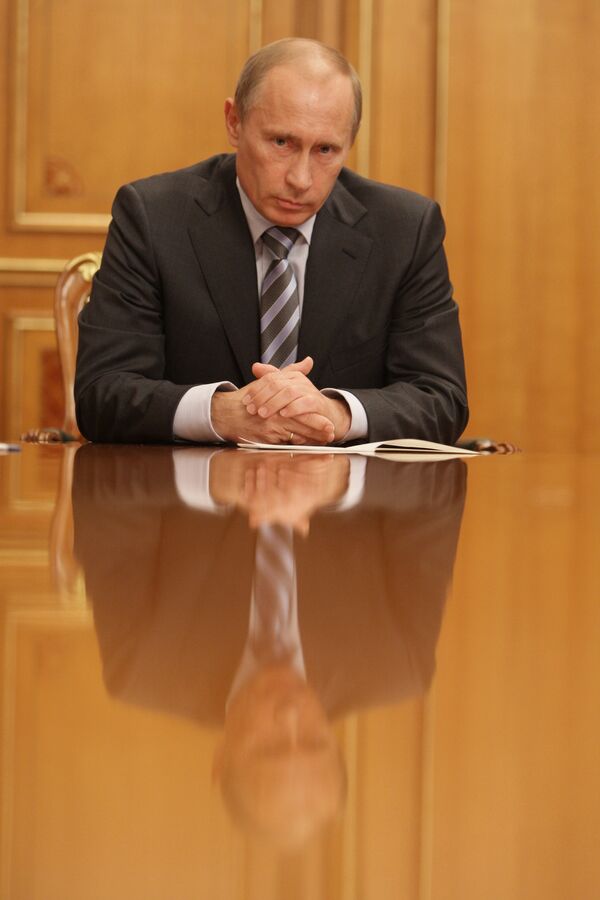MOSCOW, August 9 (RIA Novosti) - On August 9, 1999, Russia’s first president Boris Yeltsin introduced to the nation his successor, a man who he said could consolidate society and ensure the continuation of reform in Russia.
“This is Vladimir Vladimirovich Putin, the Security Council secretary and director of the Federal Security Service,” Yeltsin said. His choice was then a shock to many, and the question “Who is Mr. Putin?” embarrassed the Russian delegation at a Davos forum.
Now, a decade on, everybody can answer the question.
When leaving the presidential post in February 2008, Putin himself said he had provided an answer with his actions. Both supporters and opponents of incumbent Prime Minister Putin agree that much had been done.
“Our gross domestic product stood at some $250 billion [a decade ago], and it exceeds $1.5 trillion now,” Vyacheslav Nikonov, a political analyst, told RIA Novosti.
He also said Putin had helped Russians have more self-respect and strengthened the country’s position in the international arena.
The maintenance of Russia’s unity is often viewed as Putin’s mission. Remembering his first years as president, Putin said Russia was then on the brink of disintegration, with regional laws running counter to the Constitution and federal laws, which were ignored in regions.
The speaker of the Federation Council, the upper house of Russia’s parliament, described Putin as “the most unusual politician in Russia’s contemporary history.”
“This is a man who has never strived for power, the more so for supreme power, but once he obtained it, he saw in it a certain value that should be held on to and not let go, and he counted it as a unique chance to serve his country,” Sergei Mironov said.
However, the leaders of the Communist Party and the ultranationalist LDPR, Gennady Zyuganov and Vladimir Zhirinovsky, mentioned a number of drawbacks to Putin’s work as president and prime minister.
Zyuganov said that although the country had advanced a long way under Putin, tough rhetoric on foreign policy issues left Russia “without any friends on its borders, and there are complications in relations with all of them.”
“He has managed to establish quite a good dialogue with political parties, yet he hears without listening,” the Communist leader added.
Zhirinovsky criticized Putin for paying insufficient attention to agriculture and not doing enough to limit monopolies.
“In addition, it has taken us too long to switch to global [energy] prices with Ukraine and Belarus and other countries. Perhaps, we have made excessive concessions to the United States by eliminating a base in Cuba and drowning the [Mir] orbital station [in the Pacific Ocean in 2000],” the ultranationalist leader said.
Assessing Putin’s decade in power

Subscribe
On August 9, 1999, Russia’s first president Boris Yeltsin introduced to the nation his successor, a man who he said could consolidate society and ensure the continuation of reform in Russia.

